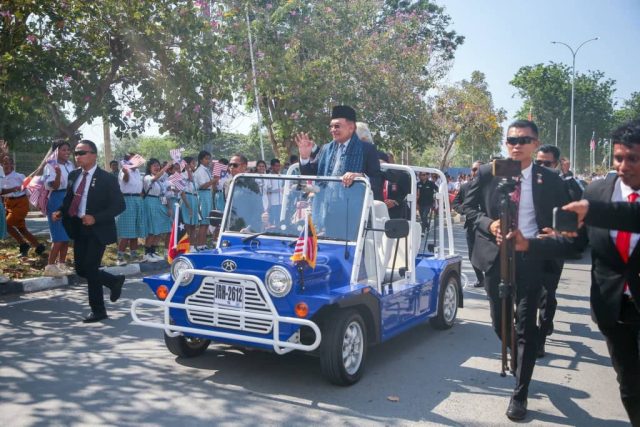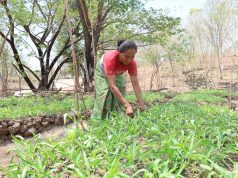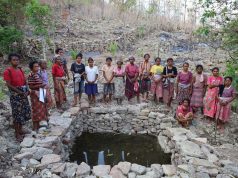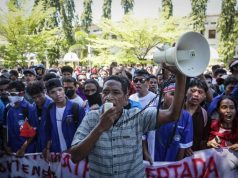
By: Dr Khoo Ying Hooi (Associate Professor of International Relations and Human Rights)
When Prime Minister Anwar Ibrahim landed in Dili this week, it marked the second official visit by a Malaysian leader to Timor-Leste. The last time a Malaysian Prime Minister made the journey was in October 2003, when Mahathir Mohamad visited in the final months of his tenure. Anwar’s trip, therefore, comes at a symbolic juncture when Malaysia holds the ASEAN Chair and Timor-Leste stands on the cusp of joining the regional bloc after years of waiting.
On the surface, the visit was about diplomatic courtesies: handshakes, bilateral agreements on finance, education and training, and Malaysia’s public commitment to shepherd Timor-Leste into ASEAN by October 2025. But beyond the official photographs lies a deeper historical resonance. Nearly thirty years ago, in 1996, Anwar, then Deputy Prime Minister, defended his government’s controversial decision to shut down the Asia-Pacific Conference on East Timor (APCET II) in Kuala Lumpur, arresting participants and silencing East Timorese voices under pressure from Indonesia.
Today, the same Anwar is warmly welcomed in Dili as a partner and advocate for ASEAN integration. The arc from APCET to ASEAN captures the ironies of Southeast Asia’s history, and offers a reminder of both progress and unfinished business.
From Silenced Voices to ASEAN’s Doorstep
To understand the significance of Anwar’s visit, one must recall the climate of the mid-1990s. In 1994, regional activists and scholars convened the first APCET in Manila, giving East Timorese exiles and solidarity groups a rare platform to speak. Under pressure from Indonesia, Philippine police raided the gathering. Two years later, activists tried again in Kuala Lumpur. APCET II brought together Malaysians, Filipinos, Australians, and Timorese voices determined to highlight the brutal realities of Indonesian occupation.
The Malaysian government responded with force. Police stormed the venue, arrested participants, and justified their actions under ASEAN’s principle of non-interference. Anwar, then Deputy Prime Minister, defended the clampdown. For Malaysia and ASEAN, preserving ties with Indonesia outweighed solidarity with a small, occupied nation. For civil society, however, APCET became a symbol of transnational resistance. While governments silenced discussions behind sovereignty, activists insisted that East Timor’s right to self-determination was not just a domestic Indonesian issue but a regional moral imperative.
History, however, moved forward. By 1999, East Timor held a UN-supervised referendum, voting overwhelmingly for independence despite horrific violence. In that moment of crisis, Malaysia shifted from silencing voices at APCET to contributing peacekeepers, police, and medical teams, a solidarity that Ramos-Horta now recalls as decisive for Timor-Leste’s survival.
In 2002, Timor-Leste formally became the world’s newest nation. Nine years later, it applied to join ASEAN, aiming to consolidate its place within the Southeast Asian family. Its path into ASEAN has been long and uncertain, slowed by concerns over institutional capacity and economic fragility.
Yet Timor-Leste persisted. It built democratic institutions, conducted peaceful transfers of power, and cultivated international partnerships. ASEAN has now laid out a roadmap, with membership expected in 2025. The transformation from a silenced cause at APCET to a recognised state at ASEAN’s doorstep is a narrative of resilience, but one that also exposes the contradictions of regional diplomacy.
Anwar in Dili: Symbolism and Irony
It is against this backdrop that Anwar’s visit acquires weight. Symbolically, it represents Malaysia embracing a neighbour once marginalized in regional diplomacy. It projects Kuala Lumpur as a champion of ASEAN inclusivity at a moment when Malaysia holds the ASEAN Chair.
Strategically, the visit allows Malaysia to present itself as a bridge-builder. By supporting Timor-Leste’s entry, Malaysia enhances its diplomatic credibility and demonstrates leadership at a time when ASEAN is paralysed over Myanmar. For Timor-Leste, the MoUs signed in finance, education, and infrastructure are practical steps to strengthen its institutions ahead of ASEAN accession. For Malaysia, the visit also opens modest economic opportunities, but more importantly, it signals that under Anwar’s leadership, Malaysia intends to be seen as a unifier in Southeast Asia.
Yet the ironies are unavoidable. Civil society, which was criminalized in 1996, was in fact ahead of governments in recognising Timor-Leste’s right to independence. Without the courage of activists and solidarity networks, the issue might never have broken through ASEAN’s wall of silence. Today, Timor-Leste’s membership is treated as a regional achievement, yet the voices that first championed its cause remain marginalised in official narratives.
The deeper continuity is ASEAN’s structural limitation. The principle of non-interference, once used to justify the raid on APCET, still constrains collective action. It explains ASEAN’s response to the Myanmar crisis and its reluctance to confront internal rights violations.
Malaysia, ASEAN, and the Road Ahead
For ASEAN, admitting Timor-Leste is both a milestone and a test. It demonstrates the bloc’s ability to expand and adapt, but it also raises questions about how a small, resource-constrained state will fit into the consensus model. Will ASEAN extend real support to strengthen Timor-Leste’s institutions, or will membership be treated as symbolic inclusion without substantive backing?
For Malaysia, the visit is a chance to rewrite history. But the past cannot be erased. The memory of APCET remains a reminder of the gap between state interests and civil society struggles. To be credible, Malaysia must not only lead on enlargement but also engage with civil society, which has historically anticipated the moral demands of the region more quickly than its governments.
For Timor-Leste, ASEAN membership offers visibility and security, but it also risks absorbing ASEAN’s culture of cautious silence. The challenge for Dili will be to use ASEAN as a platform without losing its distinct voice on democracy and justice.
Anwar’s visit to Dili is more than a diplomatic milestone. It shows how far Timor-Leste has come, from silenced voices at APCET to ASEAN’s doorstep. It reflects Malaysia’s shifting role, from silencing solidarity to presenting itself as a regional partner. And it underscores ASEAN’s enduring challenge: balancing sovereignty with the demands of justice and inclusion.
APCET is a reminder that civil society, not states, was the first to stand with Timor-Leste. This should not be forgotten.
Will ASEAN honour that legacy by opening itself to voices of democracy and rights, or will Timor-Leste’s membership fold into old habits of silence? From APCET to ASEAN, the story of Timor-Leste is not only about joining a club of states. It is also about whether Southeast Asia can reconcile its past with the demands of its future.Khoo Ying Hooi, PhD is associate professor at Universiti Malaya










